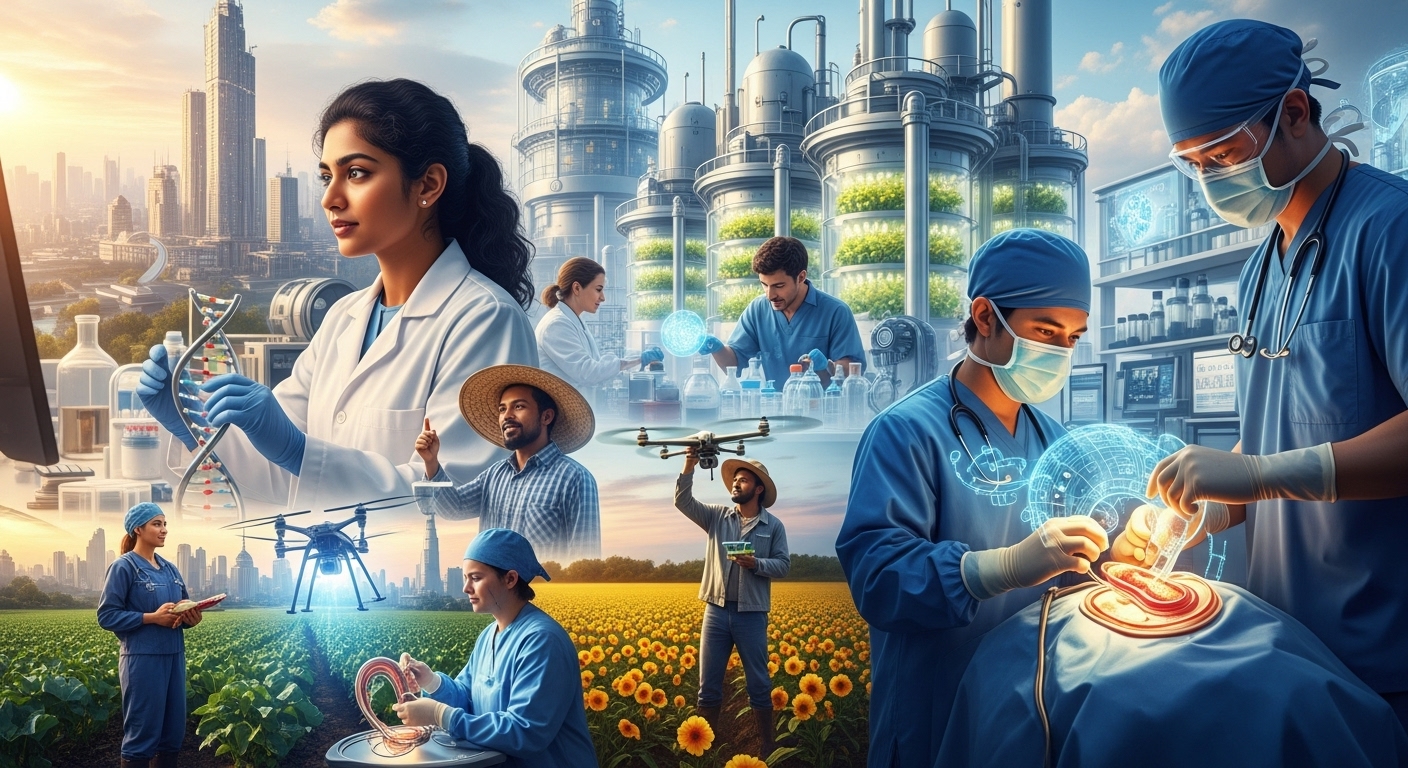Biotech, or biotechnology, is a rapidly evolving field that’s becoming increasingly significant in our daily lives. It’s not just about futuristic science fiction stuff; we’re talking about real-world applications that are happening right now. From the food we eat to the medicines we take, Biotech is there, often silently making a difference. But it’s not just about the science—there’s a whole world of innovation and trends that are shaping this field. If you’re curious about the future, there’s a lot to dive into.
Understanding the Basics of Biotech
So, what exactly is Biotech? Well, it’s essentially using living organisms and systems to develop or make products. Think about brewing beer or making yogurt, those are some of the oldest forms of biotechnology. But now, it’s expanded way beyond that. We’re talking about genetic engineering, molecular biology, and more. It’s a vast field with subfields like medical biotechnology, agricultural biotechnology, and industrial biotechnology.
The Role of Genetic Engineering
Genetic engineering is perhaps one of the most talked about aspects of Biotech, mainly because it sounds like something out of a sci-fi movie. But it’s very real and very present. It involves modifying the genetic material of organisms to achieve desirable traits. The applications? Huge. We’re talking about crops that can withstand harsh climates, or bacteria engineered to clean up oil spills. The possibilities are endless.
Medical Biotechnology: A Game Changer
Then there’s medical biotechnology, which is really where things get interesting for a lot of people. It covers everything from vaccine development to creating artificial organs. Advances in this area can potentially change how we approach diseases. For instance, the development of personalized medicine, where treatment is tailored to an individual’s genetic makeup, is groundbreaking. It’s like having a blueprint for what works best for you and only you.
Biotech in Agriculture
Agriculture is an area where biotechnology has made significant strides. GMO crops, for instance, have been engineered to grow faster and resist pests better than their non-genetically modified counterparts. There’s a lot of debate about this—some people are concerned about safety and ethics—but it’s undeniable that GMO crops have significantly increased agricultural productivity.
Benefits and Controversies
- Higher crop yields
- Reduced need for chemical pesticides
- Longer shelf life for produce
- Concerns about long-term health impacts
- Ethical debates over ‘playing God’
While there are numerous benefits, the controversies sometimes overshadow them, especially when it comes to public perception. If you’re curious, the BBC has covered various aspects of these debates.
Industrial Biotechnology: Changing Manufacturing
Industrial biotechnology is another exciting area. It involves using enzymes and microorganisms to create bio-based products, from biofuels to biopolymers. It’s about making manufacturing more sustainable. Imagine producing plastics from plants instead of petroleum. The goal is to reduce the carbon footprint of manufacturing processes, and it’s something we’ll be seeing more of as sustainability becomes a priority.
Biofuels: A Sustainable Alternative?
Biofuels are a hot topic. They are made from living matter and can potentially replace fossil fuels. The idea sounds great, but there are challenges. Producing biofuels requires land and resources, and there’s a debate over whether it’s worth diverting these from food production. But as technology advances, we might see more efficient methods emerge. Companies are working on it, with promising results. Check out some insights here.
The Ethical Conundrum
With great power, as they say, comes great responsibility. The ethical implications of biotechnology are vast and complex. Gene editing, for instance, has opened up discussions about the potential to ‘design’ humans, which raises moral and ethical questions. Who gets to decide what’s an acceptable use of this technology? And how do we regulate it?
Regulations and Policies
Governments around the world are grappling with these questions. Policies are being developed, but it’s a fine balance between encouraging innovation and ensuring safety. Privacy issues also come into play, especially with personal data like genetic information becoming part of the equation. Speaking of privacy, understanding how personal data is handled is essential, as discussed in the privacy policy.
Current Trends and Future Directions
Looking forward, what’s on the horizon for Biotech? The trends are pointing towards increased integration of AI and machine learning, which could accelerate discoveries by analyzing vast amounts of biological data quickly. Also, the ongoing development of CRISPR technology, a tool for precise genetic edits, promises more breakthroughs.
| Trend | Description |
|---|---|
| AI Integration | Leveraging computational power for faster discoveries. |
| CRISPR Advancements | Refining gene-editing techniques for precise applications. |
| Personalized Medicine | Creating treatments tailored to individual genetic profiles. |
These are just some of the many ways Biotech is evolving. The landscape is changing, and it’s an exciting field to watch. The intersection of technology and biology could lead to solutions we haven’t even imagined yet. But as with any powerful tool, it’s all about how we use it. And that’s what makes the future of biotech both thrilling and a bit daunting.
FAQs
- What exactly does Biotech include? – Biotech covers everything from genetic engineering and medical advancements to agricultural improvements and industrial applications.
- Are GMOs safe to consume? – Most scientific studies suggest they are, but it’s always a good idea to stay informed from reliable sources.
- How does genetic engineering help in medicine? – It allows for the development of treatments tailored to individual genetic profiles, potentially improving efficacy and reducing side effects.
- Is Biotech environmentally friendly? – It can be, especially with advancements in industrial biotechnology aimed at reducing the carbon footprint.
- How do I keep up with Biotech trends? – Following trusted news outlets and scientific publications can help. The BBC and other reputable sources are a good start.
There you go, a quick dive into the world of biotechnology. It’s a field that’s as vast as it is fascinating, and it’s only going to keep growing. As we move forward, it’ll be intriguing to see how these advancements shape our world. Keep an eye on the headlines; the next big breakthrough might be just around the corner.



